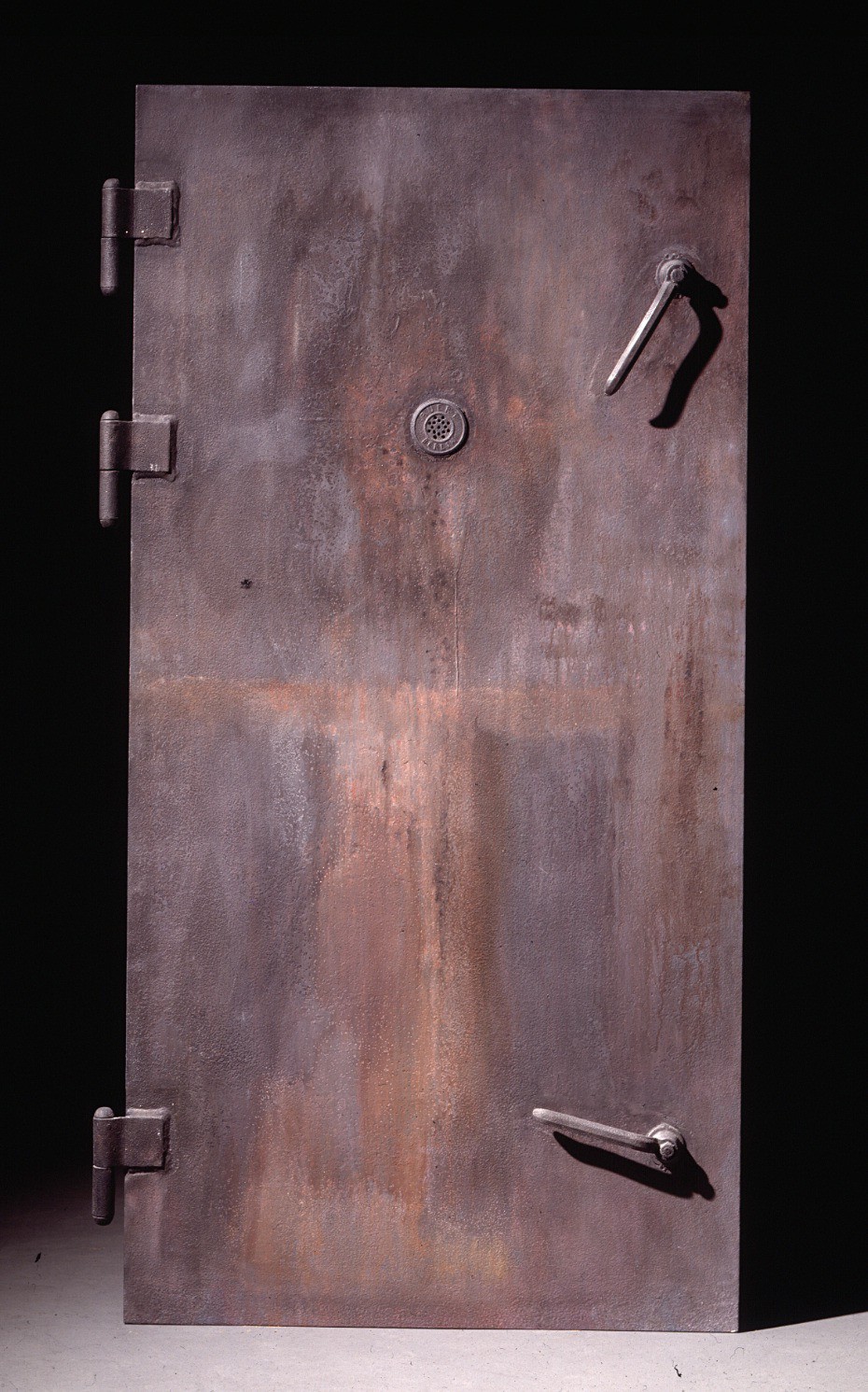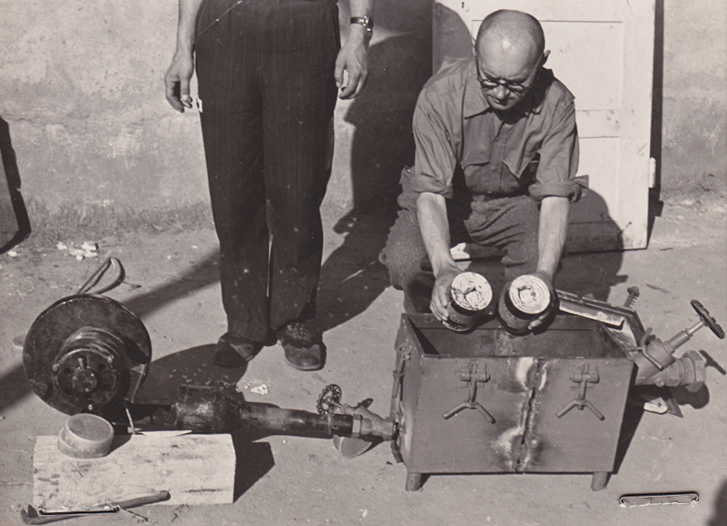Archie wrote: ↑Sun Nov 17, 2024 7:11 pm
Scott wrote: ↑Sun Nov 17, 2024 4:43 pm
Well, the Leichenkeller were actually morgues not bomb shelters, so the doors opening outwards make sense.
The gas-tight doors at the Brausebad (shower-bath) in the new crematorium building at Dachau open outwardly too. This was a refrigerated morgue that had originally been a shower and had the ceiling lowered for better insulation.
I think all revisionists are agreed that they were
primarily morgues.
But there remains the question of how to interpret the documents referring to LK1 as a "gassing cellar" or a "gas cellar." Assuming the documents are legit, there must have been some "gas-related"
secondary function for these rooms. Mattogno favors a delousing/fumigation explanation. Butz and Crowell had the air raid or gas shelter hypothesis. You favor Mattogno's hypothesis?
Also, I assume you are aware but Fritz Berg is actually one of the earliest to suggest the air raid shelter hypothesis. He cited the Nyiszli quote in a footnote of one of his JHR papers in the 80s. But he never really developed the thesis. Do you know if he had an opinion about it later in life?
Well, I'm not really disagreeing. Morgue or undressing area is the usage for the two Leichenkellers 1 or 2 in each K II or K III crematorium building ─ but there might have been some early plans for a disinfection or fumigation room also in the building or cellar.
Butz originally speculated that "gassing cellar" (
Vergasungskeller) might be an equipment room that mixed the combustible fuel and air mixture like the
Vergaser (carburetor) on an old German car. This interpretation was wrong, however, as the ovens were coke-fired and this process was integral to the oven itself. Most cremations are arguably done with natural gas (methane) today rather than with coke.
Jan Van Pelt thinks that the terminology "gassing cellar" is a Freudian slip and that the killers meant gas-chamber but were still not being nearly coded enough in their memos, and that somebody vainly red pencilled it for later redaction (which then never happened). This explanation is kind of dumb in my opinion.
It is possible that the Germans might have been originally planning to put a fumigation cellar in the building for obvious reasons, and they might even have done so.
On the other hand, they might have decided that it was not worth it and simply burned much of the dirty and worn clothing that was removed from corpses or else carted it off for proper fumigating, laundering and repair ─ assuming that they decided to keep it at all and that not all corpses taken to the Kremas were infested with body or clothing lice.
If the corpses are lousy, and especially if they died of typhus, it is important to burn the clothing or fumigate and sterilize it right away because lice can hibernate in a pile of dirty clothing for over a year ─ and that is where the lice will gather instead of following the dead bodies.
In each of Kremas II and III, there was a trash incinerator on the ground floor on the opposite side from the crematoria ovens. There were no trash incinerators with Kremas IV or V, which is what I think is really going on with the famous
Sonderkommando photos.
No, they are not burning overflow bodies from the 1944 Hungarian Action in water-sogged pits behind Krema V. But they are undressing corpses, and the clothes or uniforms are being immediately burned upon bonfires just inside the wire in the "ash disposal area."
The corpses will probably go into the Krema V morgue for cremation later. The photos are taken from just inside the Krema V morgue door, which the Polish Resistance is calling the gas-chamber and claiming (per the legend) that bodies are being burned in pits.
As far as Mr. Berg and the Nyiszli passage, I don't recall exactly what he said, but it seems like a minor slip on Dr. Nyiszli's part if the thesis is that the cellar space is being used for homicidal gassings around the clock.
It is probably just a simple admission that people could hide in a basement (or morgue) during an air raid if the room were not chock full of bodies. Dr. Nyiszli was performing pathology autopsies, so he would have been around in such areas. And this shelter would not provide a lot of protection in any case, but it would have been safer than otherwise and might be a consideration during the few 1944 air-raids. It is not a hardened space, for sure, but digging slit tenches at Birkenau was very hard because of the high water table.
Anyway, Pressac thought that gas-tight doors showed homicidal intent, but not hardly. In reality, it would be quite normal to have gas-tight doors in either a morgue or a cellar that could be used as an occasional bomb-shelter.
And if there was a fumigation/disinfection room, cellar, or closet in the building, then of course they always have gas-tight doors anyway. And peepholes, if any, are fairly standard Luftschutz equipment too.











